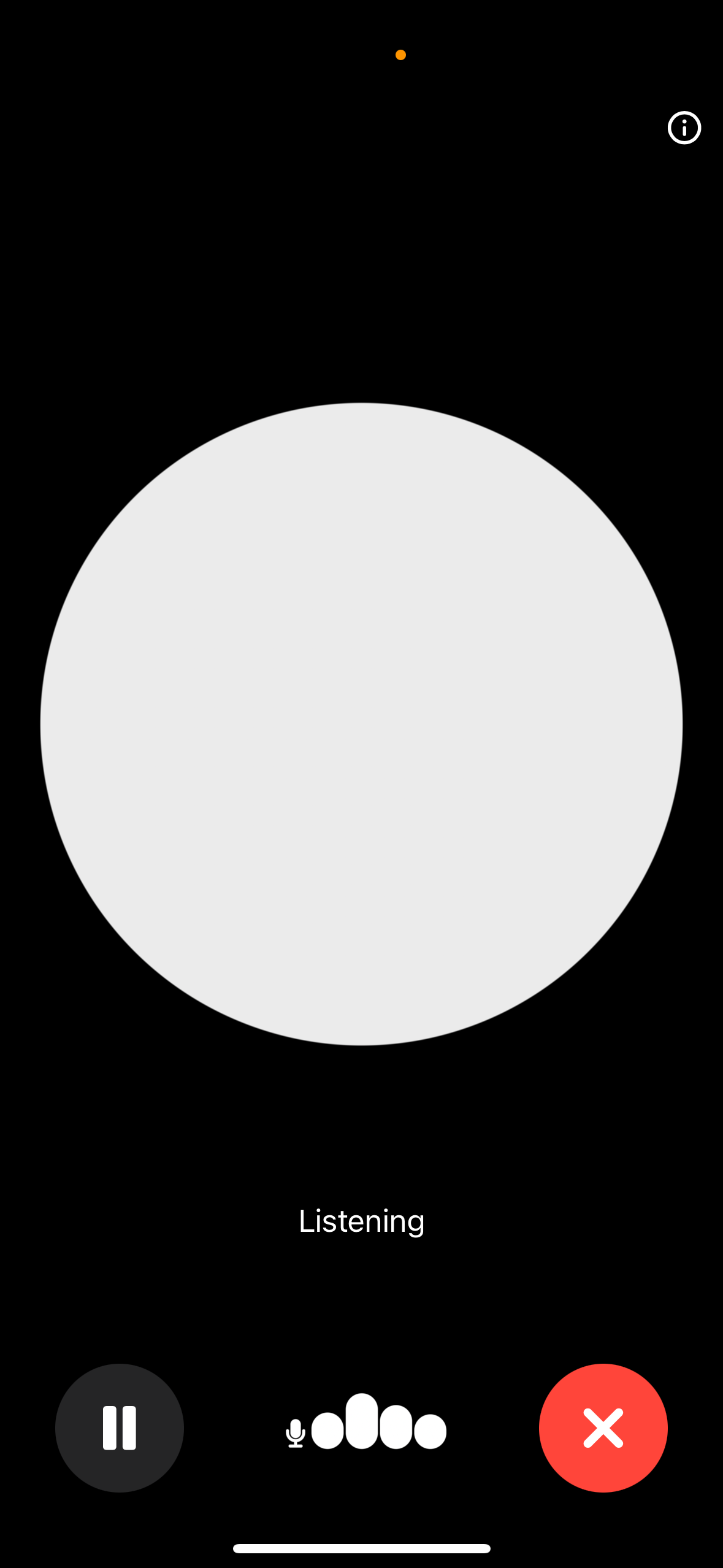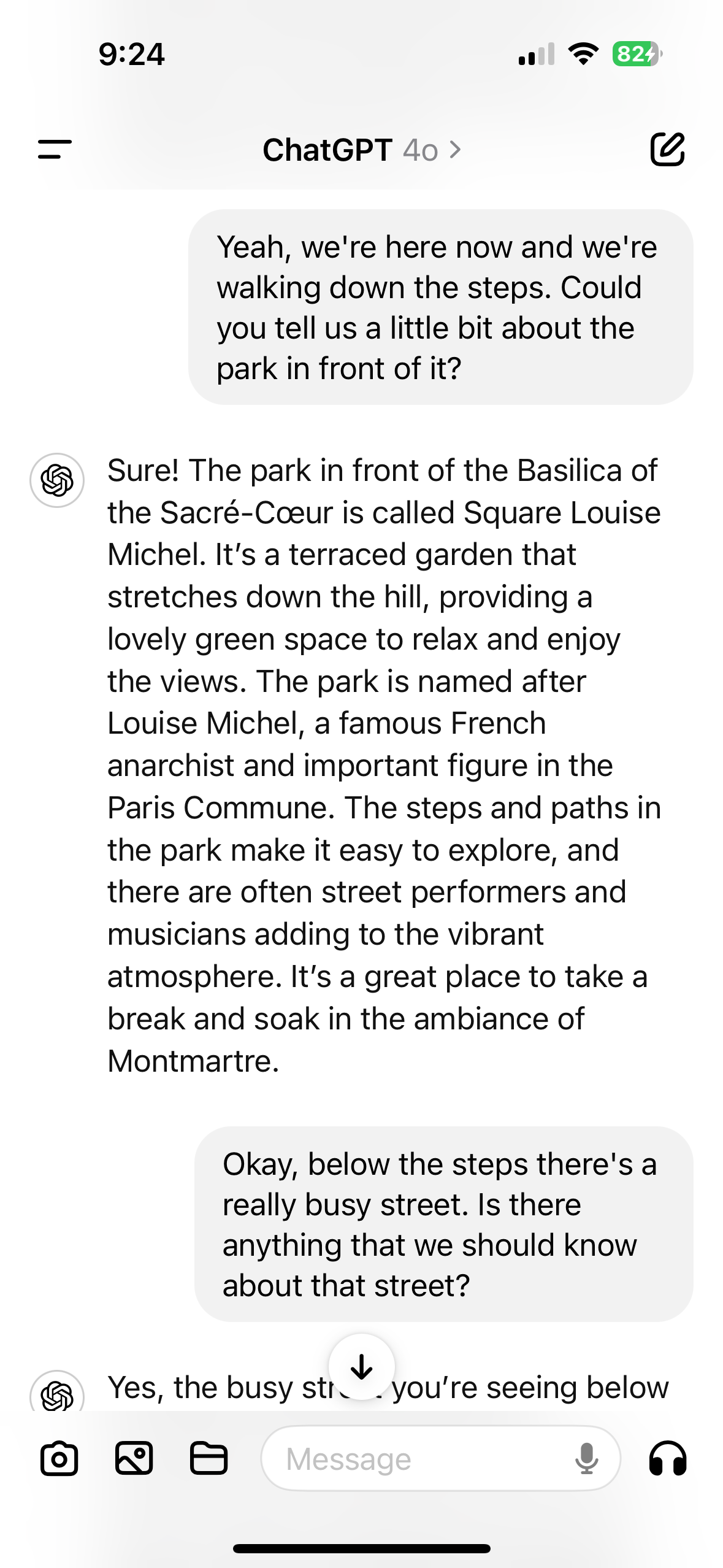Exploring Paris with GPT-4o
On our recent trip to Paris, my wife and I wanted to explore the city and learn about the history of the art, architecture, and people there. On past trips to Europe, we've really enjoyed walking tours, often of the Jewish or medieval quarter. But these walking tours have some problems. You get annoying tourists that either walk too fast or too slow, people who ask irrelevant questions, and you don't get to take the time to observe the small nuances, cute cafes, and life of the city.
When we've gone to museums, we love the self-guided audio tours. So we took a similar approach. On our first day in Paris, we explored the Montmartre district and downloaded an app with an audio walking tour that was geolocation-based. It was great, but as we were leaving Montmartre, we didn't feel like we were done.
As we were walking back through the city, I wanted to learn about the park we were walking through and the boulevard we were walking down. I opened ChatGPT, pressed the microphone, and stepped into the future of interactive content consumption. The next 30 minutes were back-and-forth with shared AirPods and myriad questions. We got to ask about the smallest little things and our random curiosities. We got to take a different path both physically and educationally with our AI companion.


A snippet from our conversation with GPT-4o
The next day we did another geolocation-based walking tour and another ChatGPT experience. As we explored museums, we used vision + audio to learn about Rodin and other great French artists. When we wanted to take a detour and understand the influence of The David on the sculpture over there, we could do that as well. And we had a world-class teacher at our fingertips and our only complaint was the random "umms" that seemed to add no value.
A few days later, we went to Girona, Spain, and wanted to do another walking tour. But there were none available on the geolocation app. So of course, we turned to ChatGPT. When the museum we wanted to visit had a power outage, we just learned about the content and history of that area through ChatGPT. Truly a wonderful way to learn.
Maybe a year ago, I had an idea for a travel-based app that would do walking tours of cities. ChatGPT gets you 90% of the way there. There are definitely features that would make it better, for example, not having to prompt it. The next level experience would combine the geolocation-based features of the app with the endless discovery of ChatGPT.
This type of interactive experience of learning, of questioning, and of self-driven content creation is, in my opinion, the future across consumption and education. It doesn't have to stop with travel. Imagine you're listening to a Andrew Huberman podcast and you interrupt to start asking questions. It can be trained on the corpus of the interviewer, or it can just use what's out there on the internet. You can stop Huberman when he starts spewing all these random words and scientific terms to actually understand what they mean, or maybe inquire how his recommendations on sleep can be modified for your busy schedule.
We have quickly come to label ChatGPT and its competitors as “chatbots” but I think a better term for this experience is turned based content. Turn based content can span modalities, is interactive, and is personalized. It’s a new content format and we’re only in the very early innings.